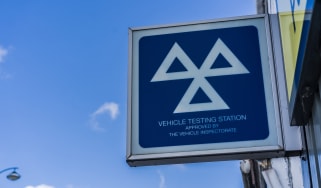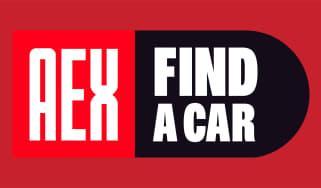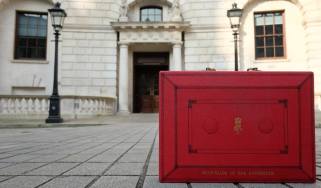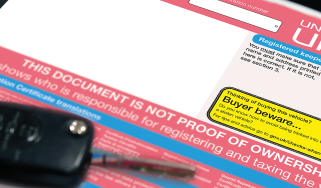Car tax refunds: how to claim yours
If you're selling your car, you might be due a refund on your unused VED car tax. We guide you through the rules around getting a refund on your car tax
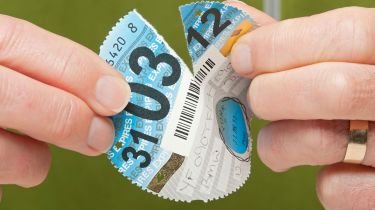
If you’re looking to sell your car, you might be wondering what happens with your car tax when a new owner is found. These days, it’s quite simple; any outstanding months of car tax (officially known as Vehicle Excise Duty) are refunded back to you when you inform the DVLA that you no longer own the car using the V5C registration document. But how do you claim a car tax refund? Read on for a full guide on how to cancel your car tax, when you might be eligible for a refund and how to get your money back.
When selling a car, it’s pretty easy to cancel your VED tax and claim a refund on any months you’ve already paid for but haven’t used. All you have to do is let the DVLA know. Gone are the days of being able to sell a car with any car tax remaining or the buyer being able negotiate a discount if the car tax was due to be renewed in the coming months. The new system means that the new owner must pay to tax the car afresh and you can claim a refund on any tax you haven’t used.
You can also claim a car tax refund if you have taken your car off the road using a Statutory Off Road Notice (SORN). Or if your car has been written-off by your insurance company, scrapped, stolen, exported from the UK or registered as a tax-exempt vehicle.
If you’re buying a car, the key thing to remember is that it’s the responsibility of the new owner to re-tax the vehicle when they take ownership of it. It’s also important that the DVLA is informed straight away of the change of ownership or a £1,000 fine may be incurred by the original owner of the vehicle. You can do this online via the DVLA website and you’ll get an email confirmation.
What is a car tax refund?
A car tax refund (otherwise known as VED refund or road tax refund) is money back on any vehicle excise duty that you’ve already paid for. For example, if you have paid your car tax for the year and you sell your car after two months, you will be able to reclaim most of the tax. The DVLA will issue a car tax refund for the remaining full months, not partial months, so it is best you apply for the refund as soon as possible to avoid missing out by a few days.
How do I claim a car tax refund?
The process of claiming a car tax refund is really straightforward. All you need to do is:
- Inform the DVLA why you’re cancelling your car tax.
- Wait for the DVLA to process the cancellation
- Await for your remaining car tax to be refunded via a cheque in the post.
If you pay your car tax by direct debit, this will be cancelled as soon as you inform the DVLA the car is sold or off the road.
How do I cancel my car tax online or by post?
If you’ve sold or declared your car as SORN, you need to get in contact with the DVLA to cancel your tax. The easiest way to do this is to use the DVLA online services. If you’d prefer to speak to someone directly, the DVLA website has a webchat and contact email address dedicated to vehicle tax. Alternatively, you can get in touch by post by sending your enquiry to:
- DVLA, Swansea, SA99 1AR.
What documents do I need to cancel my car tax?
To cancel your car’s tax you’ll need your car’s V5C logbook or V11 road-tax reminder form. There will be an 11-digit document reference number you need to enter in order for the refund to be processed.
What reasons can I have for cancelling my car tax?
You’ll need to let the DVLA know your reason for cancelling your car tax before you can get a refund and it must be for one of the following reasons:
- The car has been sold or transferred to someone else
- You have declared your car off the road (SORN)
- Your car has been written off by your insurance company
- The car has been exported outside of the UK
- Your car has been registered as a tax-exempt vehicle
- The car has been stolen
There are no other reasons allowed for cancelling your car tax. If you drive on the road without any valid car tax, you can be fined £80 by the DVLA, reduced to £40 if paid within 28 days. If you are caught by the police you could receive an on-the-spot fixed penalty notice of up to £1,000 and your car may be seized.
How much road tax can I get refunded?
Once you've told the DVLA that you no longer need road tax on the car, it will be cancelled and you will automatically get a refund for any full months that are left remaining on your vehicle tax.
If you pay for your car tax by Direct Debit this will be cancelled automatically, while a cheque for the refund amount will be made out and sent to the name and address on the vehicle's V5C registration document. The amount reimbursed will be calculated from the date that the DVLA receives the confirmation of cancellation. As that's the case, it's best to notify the DVLA as soon as possible so you don't risk losing a months' worth of money unnecessarily.
If you've paid by credit card, paid the direct debit surcharge when you applied for the road tax or paid the 10 per cent surcharge for the one-off six-month road tax payment, then these won't be refunded. Of course, if you own a car which is over 40-years old or a fully-electric car, you will not be paying any road tax so you will not qualify for any road tax refund.
When will my road tax refund arrive?
You should receive a cheque for your road tax refund amount in the post after six weeks. If you haven't, then you need to contact the DVLA tax enquiries department. You can do this by calling the DVLA contact number 0300 790 6802, Mon to Fri (8am-7pm), or Sat (8am-2pm).
You can also E-mail the DVLA or get in touch by post at: Vehicle Customer Services, DVLA, Swansea SA99 1AR.
Due to the sheer number of enquiries and cases the DVLA has to deal with, you may need to remain patient. It can take a few weeks for the DVLA to process an application, so you should wait for at least four weeks before you get confirmation that your vehicle is SORNed, and six weeks for a car tax refund, before getting in touch.
Our Car Tax Checker tool lets you check your tax status and renewal date in seconds. Check your VED car tax now...
Find a car with the experts



